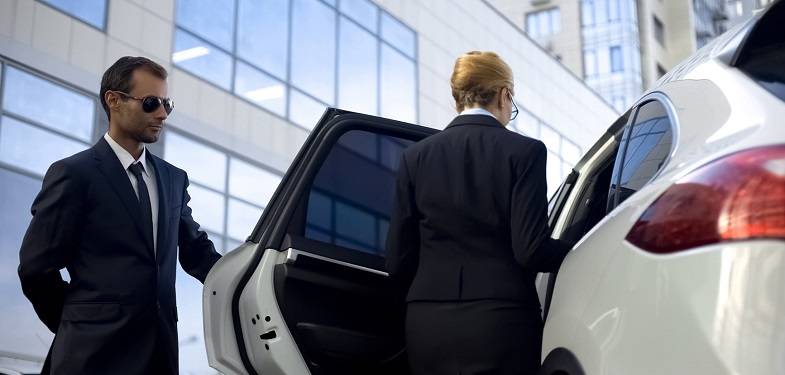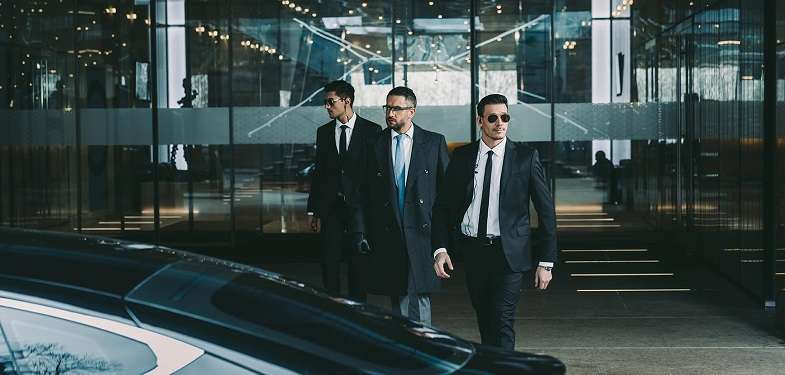What is close protection work?
We have seen a big increase in demand for close protection work over the past few years and this is been driven by a desire for leading figures including CEOs, politicians, musicians, athletes, and other influential people wanting to keep themselves and their families safe from perceived or known threats.
Close protection officers (CPOs), or bodyguards, as they are sometimes referred to, provide a high level of security to these high profile individuals, families, and organisations. They are highly trained, security specialists whose job is to keep people safe from physical harm, unwanted attention, and other threats to their safety or privacy.
Let’s take a close look at the role of a close protection officer.
What is close protection?
Close protection is a type of personal security focussed entirely on protecting an individual, both physically and mentally but also reputationally. Whilst close protection detail can extend to the families of protected individuals, the role of a close protection officer is purely focussed on the individual.
The goal of close protection is to minimise the potential threats to a client, as well as dealing with danger when it arises. This means that close protection work is about much more than being in close proximity to a client. Planning routes, evaluating situations for danger, and carrying out extensive risk assessments are all integral to the success of close protection work.
What does a close protection officer do?

Close protection work is carried out by a close protection officer. These security experts are highly trained professionals with a huge range of experience and expertise in protecting influential figures.
Their role is to preserve every aspect of a client’s lifestyle, ensuring safety at every turn. Not only is it their responsibility to protect their client, but they also take on responsibility for the protection and safety of their possessions, property and ability to live the way they wish to, from a vast array of potential threats.
Typical roles involved in close protection security work include:
Keep clients safe from physical harm
First and foremost, close protection work involves keep clients safe from physical harm. CPOs are often the first line of defence against physical confrontation which may include anything from overexuberant fans to potential terror threats to random street crime.
Close protection officers will typically be physically very fit and trained in a wide variety of risk management skills. Being proactive is critical to removing difficult situations before they arrive but they will also often need to manage people or in order to allow for safe passage for their client, whilst ensuring the integrity of their client is not brought into question. It’s a difficult balancing act as fans often want to get close to their client with no ill intentions, however it is down to the close protection officer to manage these situations accordingly.
Anticipate and plan for potential risks for their clients

Our highly-trained security and close protection officers will assess your logistical requirements and deploy measures to ensure you can go about your business, safely and efficiently. Our comprehensive risk management process includes integrated security planning with bespoke professional security operations and solutions.
Each close protection job is treated on its own merit and close protection officers will usually have a range of equipment such as cameras, metal detectors, and screening equipment that can all be used to ensure the security of their client. Comprehensive route planning is an essential part of close protection detail work, ensuring all potential threats are identified and risks are mitigated.
Maintaining client’s privacy
Whilst close protection work is often regarded as the hands on work of protecting high profile individuals when they are attending public events, a lot of the work of a close protection officer is to maintain privacy and ensure that no one knows the whereabouts of their client or their movements.
This will also include a full understanding of a client’s schedule – who they are meeting, where they are meeting, who else is invited etc so they can plan ahead and ensure privacy is maintained. This may involve sweeping for digital recording devices in order to maintain their client’s personal affairs remain private.
The work of a close protection officer will also include sweeping the home, accommodation, office or vehicle prior to every entry in order to ensure there has been no intrusion and no potential devices planted.
Detailed route planning
Close protection work will also involve getting a client from A to B. When transporting a client to work or meetings, a close protection office needs to have a safe and secure route mapped out with exit strategies planned in advance. Where the alternate routes are. The “what if” scenarios, the nearest medical facilities. It is also important for a close protection officer to have a good understanding of all a client’s favourite destinations, from shopping malls to restaurants, and have a full understanding of the layouts so potential threats can be identified and nullified.
Defensive driving is an essential part of close protection training as evacuation may be required from any given situation.